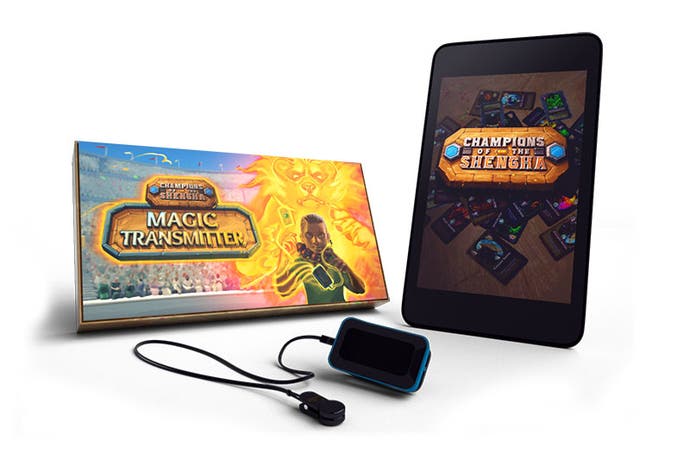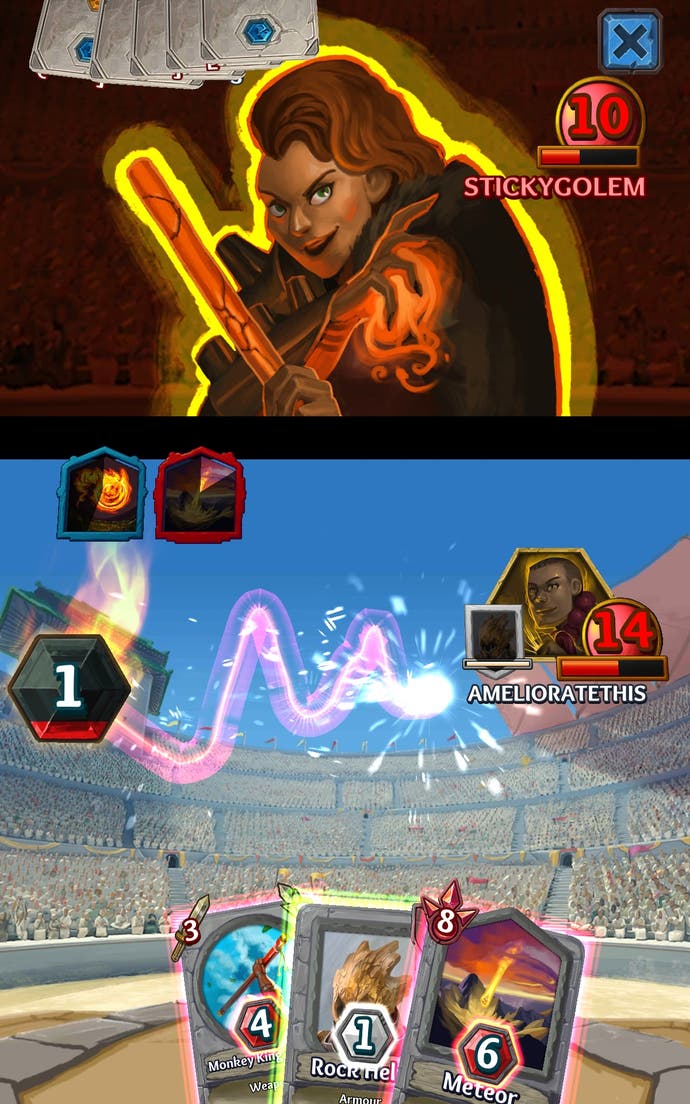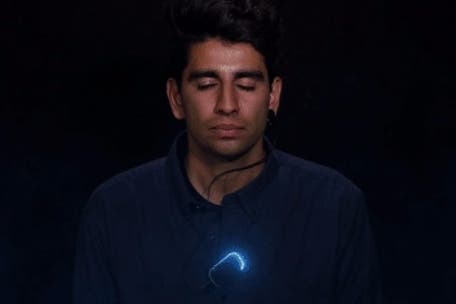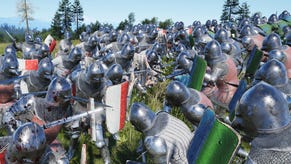A game you play with your heart
I will meditate and then destroy you.
When it comes to collectible card video games, we're used to familiar controls: mouse and keyboard or a touchscreen for dragging and dropping cards onto the virtual board.

What we're not used to is playing with our heart.
Champions of the Shengha is a new game you play through a heart-rate monitor. Like Hearthstone, you build a deck of cards and then deploy them in multiplayer duels. But unlike Hearthstone, to cast spells you have to control your emotions.
The app is a free download, but you need to buy the £40 wearable sensor, which the developers call a "magic transmitter", separately. This bluetooth ear-clip sensor tracks the player's Heart Rate Variability (HRV) - a psychophysiological marker of stress and anxiety.
BfB Labs design director Simon Fox tells Eurogamer the transmitter measures your blood as it moves through your body by shining a light onto your skin. It takes a measurement on the skin the light is being shone onto and a measurement on the skin where the light emerges from to determine your heart rate over time.
The game is interested in the "interbeat interval", or the time between individual beats of the heart (the space between the "lub dub" we feel and hear). This is measured over time to plot a waveform, which is then analysed to assess the player's "state".
This information is valuable because it reveals the status of your nervous system, Fox says. Your nervous system is split into two parts: the sympathetic and the parasympathetic. The sympathetic is a fight and flight response; the parasympathetic a rest and digest response.
"As you move around and get on with your life and you respond to things going on around you in the world, you're always shifting between ready to rest and ready to act," Fox says.
"How much you are dipping into each one of these states at any given time affects respiration, cognition, your emotional response to the world, how you are. That's what we're assessing."
Champions of the Shengha's magic system is governed by the assessment of this data. To successfully cast magic spells you have to learn to regulate your autonomic nervous system (the part of the nervous system responsible for control of the bodily functions not consciously directed, such as breathing, the heartbeat and digestive processes). Essentially, you have to stay focused and stay cool under pressure.

Fox likens playing Champions of the Shengha to meditation, which typically involves regulated breathing. So, certain mechanical parts of the change between your nervous system state are governed by your respiration.
"The other side of it is the cognisant part," Fox says. "Am I over-excited? Am I stressed? Am I angry? Am I gripping on too tight? You want to be able to let these things flow through you. You're learning to observe both the physical and psychological part of your response to the world, and to just be a little more okay with it."
Champions of the Shengha is targeted at teenagers, and its creators claim it can help combat stress and anxiety. Indeed, the game was tested in UK classrooms to help fine-tune the system.
"In Champions we throw you into this high octane duel," Fox says. "It's quite visceral and fast-paced and you have to do a lot of thinking and acting at the same time. Just like in life, in Champions in-between that stressful situation and your actual response, you can create a little space for yourself as a person to exist. It's that which allows you to cast spells."
While Fox stresses Champions of the Shengha is a piece of video game entertainment first and foremost, he says the game was designed in part to help young people increase their resilience against the development of common mental health disorders, half of which start by the age of 14 in the UK and which ultimately affect one in four people at some point in their lives, according to The National Centre of Social Research.










